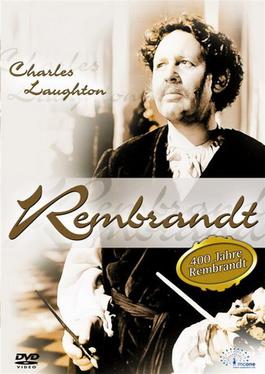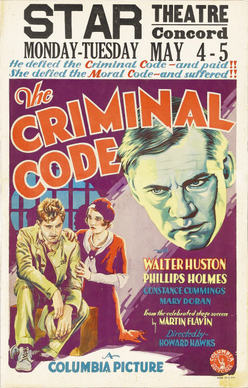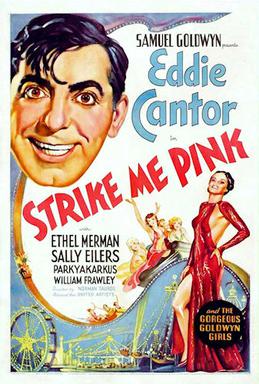Related Research Articles

The Good Earth is a 1937 American drama film about Chinese farmers who struggle to survive. It was adapted by Talbot Jennings, Tess Slesinger, and Claudine West from the 1932 play by Owen Davis and Donald Davis, which was in itself based on the 1931 novel of the same name by Nobel Prize-winning author Pearl S. Buck. The film was directed by Sidney Franklin, with uncredited contributions by Victor Fleming and Gustav Machaty.

Modern Times is a 1936 American part-talkie comedy film produced, written and directed by Charlie Chaplin. In Chaplin's last performance as the iconic Little Tramp, his character struggles to survive in the modern, industrialized world. The film also stars Paulette Goddard, Henry Bergman, Tiny Sandford and Chester Conklin.

Big Brown Eyes is a 1936 American romantic comedy crime film directed by Raoul Walsh and starring Cary Grant, Joan Bennett and Walter Pidgeon. It was produced by Walter Wanger and distributed by Paramount Pictures.

Go West, Young Man is a 1936 American comedy film directed by Henry Hathaway and starring Mae West, Warren William and Randolph Scott. Released by Paramount Pictures and based on the 1934 play Personal Appearance by Lawrence Riley, the film is about a movie star who is stranded in the country and trifles with a young man's affections. The phrase "Go West, young man" is often attributed to New York Tribune founder Horace Greeley, and sometimes misattributed to Indiana journalist John B. L. Soule, but the latest research shows it to be a paraphrase.

The Milky Way is a 1936 American comedy film starring Harold Lloyd. Directed by comedy veteran Leo McCarey, the film was written by Grover Jones, Frank Butler and Richard Connell based on a play of the same name by Lynn Root and Harry Clork that was presented on Broadway in 1934.

Rembrandt is a 1936 British biographical film made by London Film Productions of the life of 17th-century Dutch painter Rembrandt van Rijn. The film was produced and directed by Alexander Korda from a screenplay by June Head and Lajos Bíró based on a story by Carl Zuckmayer. The music score was by Geoffrey Toye and the cinematography by Georges Périnal.

The House Across the Bay is a 1940 film directed by Archie Mayo, starring George Raft and Joan Bennett, produced by Walter Wanger, written by Myles Connolly and Kathryn Scola, and released by United Artists. The supporting cast features Lloyd Nolan, Walter Pidgeon and Gladys George.

Walter Connolly was an American character actor who appeared in almost 50 films from 1914 to 1939. His best known film is It Happened One Night (1934).

Anything Goes is a 1936 American musical film directed by Lewis Milestone and starring Bing Crosby, Ethel Merman, Charles Ruggles and Ida Lupino. It is based on the 1934 stage musical Anything Goes by Guy Bolton and P. G. Wodehouse, which included songs by Cole Porter.

The Criminal Code is a 1930 American pre-Code romantic crime drama film directed by Howard Hawks and starring Walter Huston and Phillips Holmes. The screenplay, based on a 1929 play of the same name by Martin Flavin, was written by Fred Niblo Jr. and Seton I. Miller, who were nominated for Best Adaptation at the 4th Academy Awards but the award went to Howard Estabrook for Cimarron.
Public Hero ﹟1 is a 1935 American crime film starring Lionel Barrymore, Jean Arthur, Chester Morris and Joseph Calleia. The Metro-Goldwyn-Mayer production was directed by J. Walter Ruben.

Laburnum Grove is a 1936 British comedy film directed by Carol Reed and starring Edmund Gwenn, Cedric Hardwicke and Victoria Hopper. It was based on the 1933 play of the same name written by J. B. Priestley.

Jack of All Trades is a 1936 British comedy film directed by Robert Stevenson and Jack Hulbert and starring Hulbert, Gina Malo and Robertson Hare. It is based on the 1934 play Youth at the Helm. The film was made at Islington Studios, with sets designed by Alex Vetchinsky.

Everything Is Thunder is a 1936 British thriller film directed by Milton Rosmer and starring Constance Bennett, Douglass Montgomery and Oskar Homolka. Its plot concerns a British officer who attempts to escape from a German Prisoner of War camp during the First World War.

The Texas Rangers is a 1936 American Western film directed by King Vidor and starring Fred MacMurray and Jack Oakie. The picture was nominated for Best Sound Recording at the 1936 Oscars. The film was inspired by incidents from Walter Prescott Webb's 1935 history book The Texas Rangers, A Century Of Frontier Defense but filmed in New Mexico.

Call It a Day is a 1937 American comedy film directed by Archie Mayo and starring Olivia de Havilland, Ian Hunter, Anita Louise, Alice Brady, Roland Young, and Frieda Inescort. Based on the 1935 play Call It a Day by Dodie Smith, the film is about a day in the life of a middle-class London family whose lives are complicated by the first romantic signs of spring.

Strike Me Pink is a 1936 American musical comedy film directed by Norman Taurog, starring Eddie Cantor and Ethel Merman, and produced by Samuel Goldwyn.

The King Steps Out is a 1936 American musical comedy film directed by Josef von Sternberg and starring Grace Moore, Franchot Tone and Walter Connolly. It is based on the early years of Empress Elisabeth of Austria, known as "Sisi" or "Sissi", and her courtship and marriage to Franz Joseph I of Austria, after he was initially engaged to her older sister Duchess Helene in Bavaria. The film is set from 1852 to 1854.

The Perfect Gentleman is a 1935 American comedy film directed by Tim Whelan and starring Frank Morgan, Cicely Courtneidge and Heather Angel. It was based on a play by Edward Childs Carpenter. The screenplay concerns the father of a British country vicar, who almost brings scandal on the family when he becomes entangled with an actress.

One New York Night is a 1935 American comedy film directed by Jack Conway and written by Frank Davis. The film stars Franchot Tone, Una Merkel, Conrad Nagel, Harvey Stephens, Steffi Duna and Charles Starrett. The film was released on March 3, 1935, by Metro-Goldwyn-Mayer. It was based on the West End play Sorry You've Been Troubled by Walter C. Hackett, which had previously been made into the 1932 British film Life Goes On.
References
- ↑ "Life in Prison: ONE-WAY TICKET by Ethel Turner". The New York Times . Retrieved 22 August 2017.
- 1 2 Dick, Bernard F. (11 July 2014). Radical Innocence: A Critical Study of the Hollywood Ten. p. 72. ISBN 9780813147710.
- ↑ Greene, Graham (10 April 1936). "Liebesmelodie/Pot Luck/If You Could Only Cook/One Way Ticket". The Spectator . (reprinted in: Taylor, John Russell, ed. (1980). The Pleasure Dome . p. 65. ISBN 0192812866.)